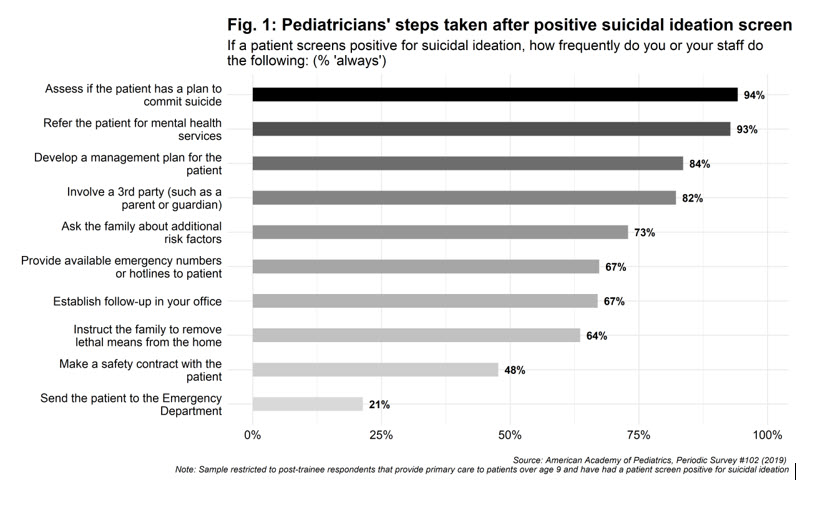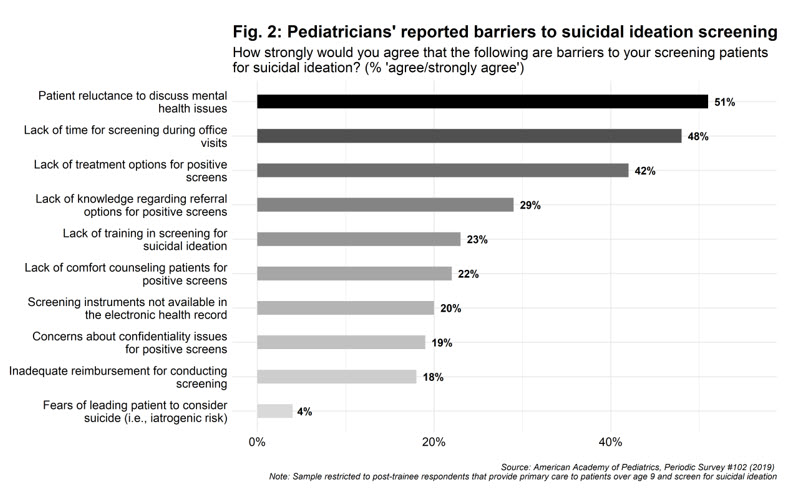Sisk B, Green C
Accepted for 2020 Pediatric Academic Societies Annual Meeting
Background: While death by suicide is the second leading cause of death for US youth starting at age 10, little is known about pediatricians' experience with screening for and treating suicidal ideation.
Objective: To examine primary care pediatricians' experiences with suicide prevention and treating suicidal ideation.
Methods: Data from 2019 Periodic Survey, a nationally representative, random sample of American Academy of Pediatrics non-retired, US members. Survey collected information on provider experiences with patient suicidality and suicide, frequency and methods of screening for suicidal ideation, steps taken after positive suicidal ideation screens, barriers to screening, and preparedness to address suicide prevention. Analysis was restricted to post-trainee respondents that provided primary care to patients over age 9 (N=377).
Results: Survey response rate was 41% (638/1575). Eighty percent of pediatricians reported having ever had a patient who attempted or died by suicide and 48% said this occurred in the past year. Over 90% of pediatricians had ever had a patient endorse suicidal ideation. Six in 10 pediatricians reported "always" screening for suicidal ideation when providing health supervision, compared to 37% that reported "sometimes" and 2% that reported "never." Screening methods included using standardized depression screens (63%), verbal inquiry (46%), and suicide-specific screening tools (9%). Over 90% of pediatricians reported they "assess if the patient has a plan to commit suicide" and "refer the patient for mental health services" after a positive screen for suicidal ideation (Figure 1), although only 64% reported they "instruct the family to remove lethal means from the home." The top reported barriers to screening for suicidal ideation (Figure 2) included "patient reluctance to discuss mental health" (51%), "lack of time" (48%), and "lack of treatment options" (42%). Only 57% of respondents reported they feel moderately or very prepared to counsel on suicide prevention, but 61% also reported being moderately or very interested in additional training on the topic.
Conclusion: Nearly half of primary care pediatricians ever had a patient attempt or die by suicide in the past year. Most reported screening for suicidal ideation, although the majority do not use suicide-specific standardized screening tools which have been shown to increase recognition of suicide risk factors. More than 4 in 10 pediatricians do not feel prepared to counsel patients and their families on suicide prevention.


Last Updated
05/20/2020
Source
American Academy of Pediatrics